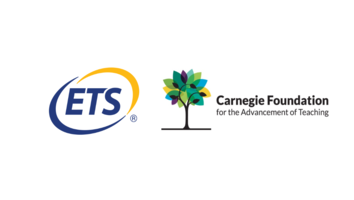From Time Units to Skill Insight: An educational movement
Since 1906, the Carnegie Unit or “credit hour” has served as the bedrock currency of the educational economy. It defines what “counts” as learning, shapes the nature of what is and is not assessed, and determines the basic organization of secondary and post-secondary education.
Where seat time has served as the primary function of learning outcomes, it is increasingly clear that the knowledge, skills, and dispositions needed to succeed in the 21st-century economy are not singularly demonstrated through time on task — whether sitting at a desk or on a digital platform. It is time to fundamentally rethink how learning progressions and mastery are demonstrated, the methods of measurement used, and how attainment of skills is communicated throughout a learner’s journey. The Carnegie Foundation and ETS are proposing that the new currency of education should be based upon meaningful skills and accomplishments demonstrated through assessment.
Working together to transform teaching, learning and assessment
 To address this critical national challenge, ETS is partnering with The Carnegie Foundation, pioneers of the Carnegie Unit, to create a robust, scalable suite of assessment and analytic tools that captures the full range of skills required for American students to succeed in K–12, post-secondary education and beyond. Together we will build a richer, smarter system of assessment, one that recognizes core academic skills and a broad array of other essential competencies.
To address this critical national challenge, ETS is partnering with The Carnegie Foundation, pioneers of the Carnegie Unit, to create a robust, scalable suite of assessment and analytic tools that captures the full range of skills required for American students to succeed in K–12, post-secondary education and beyond. Together we will build a richer, smarter system of assessment, one that recognizes core academic skills and a broad array of other essential competencies.
It is time for a seismic shift in education that puts the focus on skills. And not just cognitive skills accounted for in curriculum written for 20th-century skills and work, but the rich tapestry of skills that enable individuals to thrive in the 21st century. This is a fundamental paradigm shift from time-based to skill-based units of learning. Smarter assessments are the key to unlock the future.
